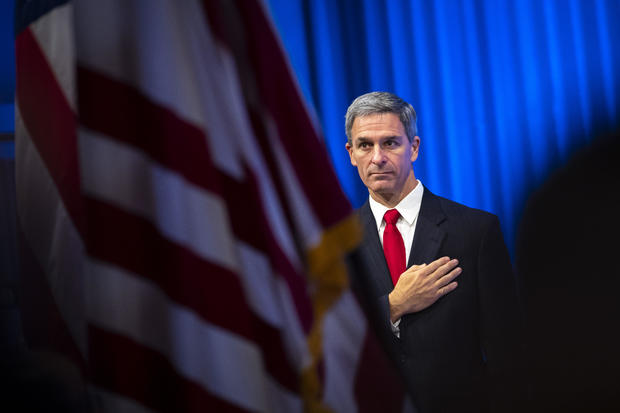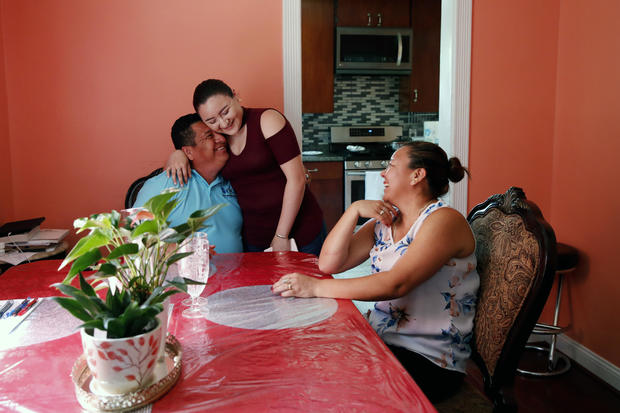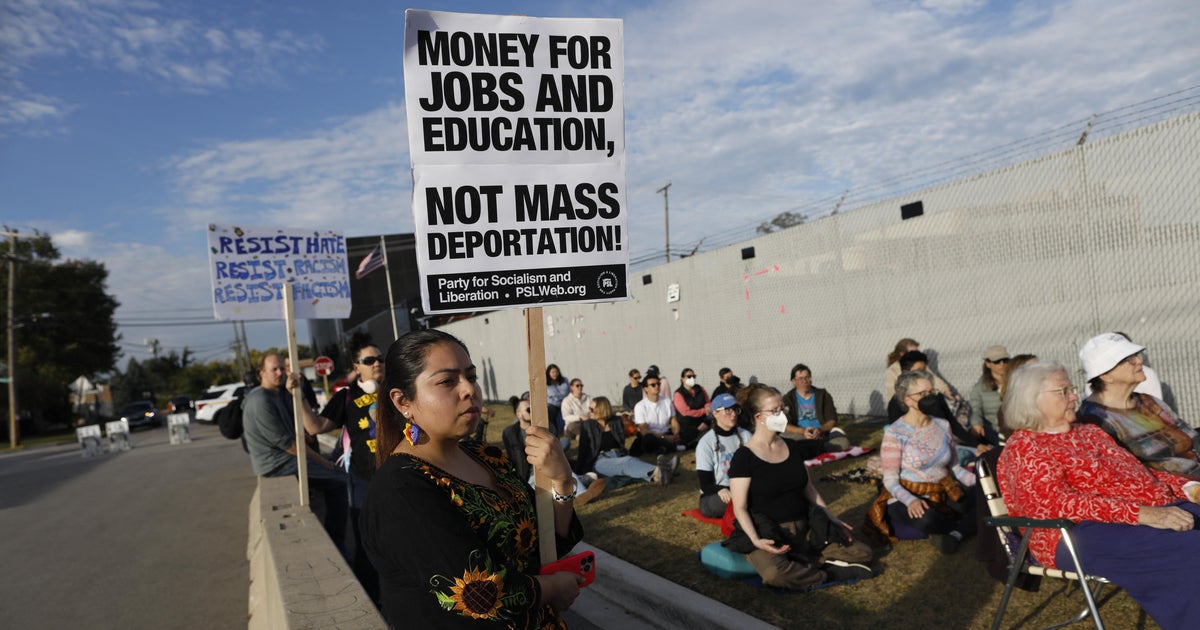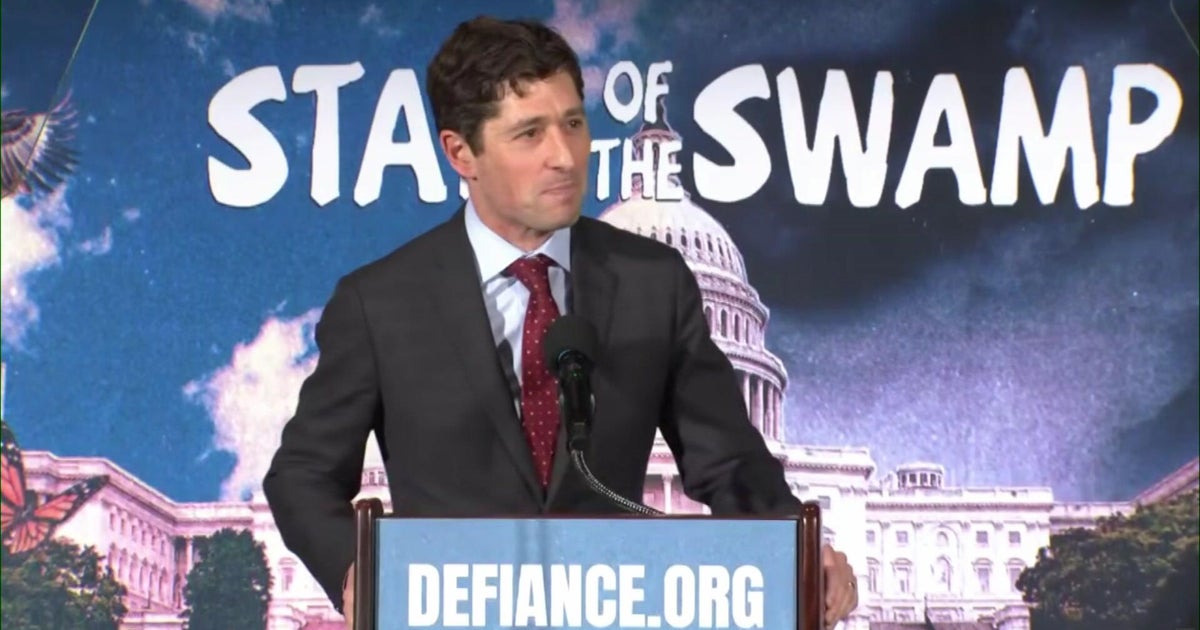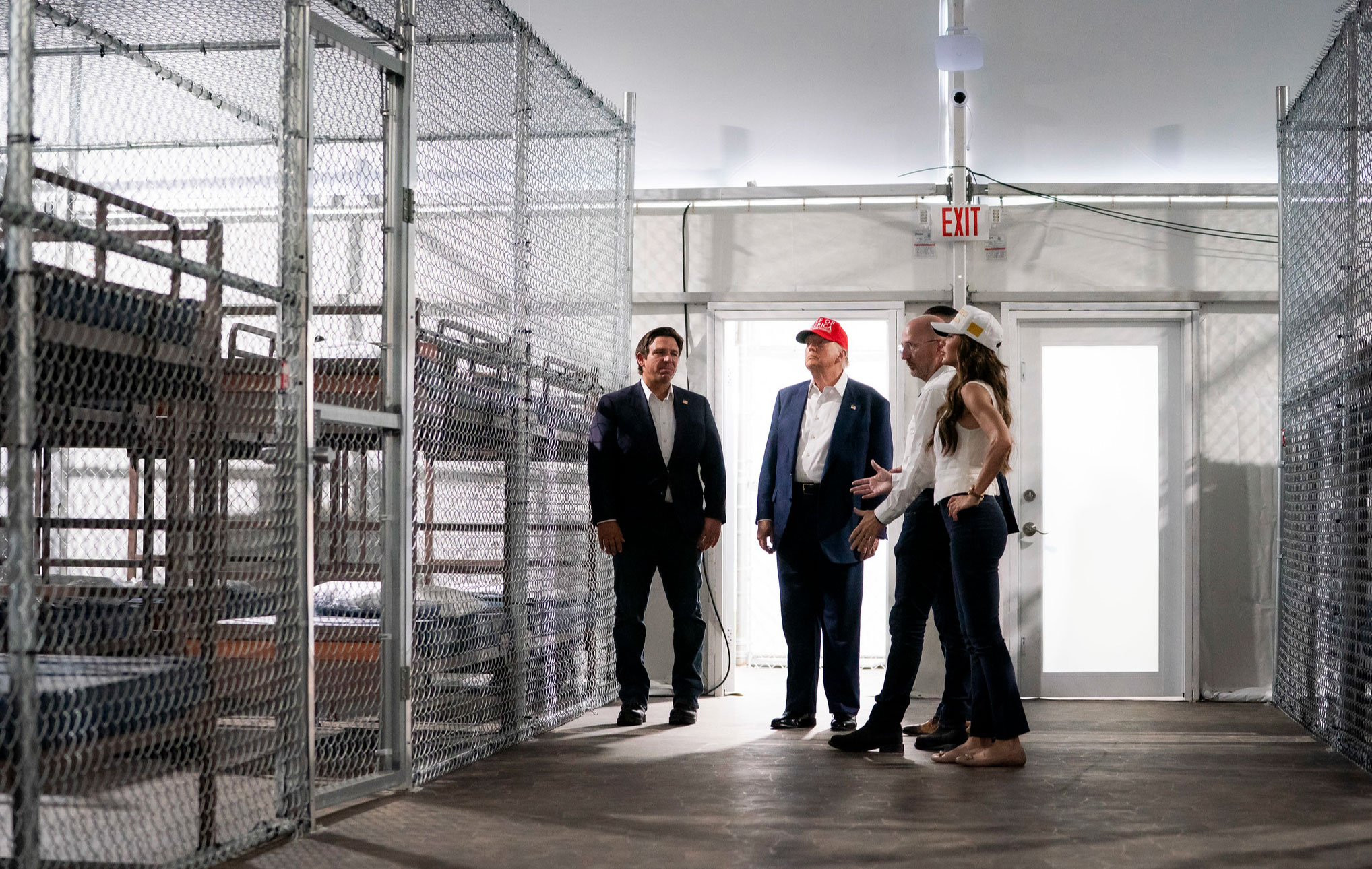Hardliners gain key posts at Trump's citizenship and immigration services agency
Washington — A group of immigration hardliners, including some who worked at an organization that has been described as a hate group by an advocacy watchdog that monitors extremism, have gained powerful posts in the federal agency in charge of administering benefits for immigrants, asylum-seekers and refugees.
The appointments at U.S. Citizenship and Immigration Services (USCIS) follow the recent promotion of its former acting director, Ken Cuccinelli, to the second-highest position at the Department of Homeland Security (DHS). Cuccinelli has been a vocal proponent of measures to restrict both legal and unauthorized immigration.
John Zadrozny, who was a top aide to Cuccinelli, has been promoted to acting chief of staff, while Robert Law, formerly a senior adviser, was named acting chief of policy.
Both Zadrozny and Law have worked for the Federation for American Immigration Reform (FAIR), whose stated mission is to "reduce overall immigration to a more normal level," and which has been designated as a hate group by the Southern Poverty Law Center (SPLC), an organization that advocates for progressive issues and monitors the activities of groups it considers extremist.
Heidi Beirich, who heads the SPLC's Intelligence Project, called the promotions of Law and Zadrozny "distressing," saying anti-immigration groups like FAIR are "funneling" their staff to top immigration posts within the Trump administration.
"These groups, which were basically outside of the mainstream, have been embraced by the Trump administration and their ideas are now policy, which is affecting millions and millions of people of color," Beirich told CBS News.
The SPLC on its website cites past racist remarks by individuals affiliated with FAIR, as well as its "ties to white supremacist groups and eugenicists," as reasons for the designation.
John Tanton, a Michigan ophthalmologist and anti-immigration activist, founded FAIR in 1979. He once warned of a "Latin onslaught" in the U.S. "As Whites see their power and control over their lives declining, will they simply go quietly into the night? Or will there be an explosion?" he wrote in a 1986 memorandum.
Dan Stein, the current president of FAIR, said the SPLC has "no credibility," adding that his group has "never had any issue with immigration per se."
"All we've ever said is that it should be lawful and that the numbers need to be properly regulated," Stein told CBS News. "This is a political issue, it's a charged issue, it's controversial. There's no question about it. But the cause of civil discourse is not being advanced by the shoddy, discredited tactics of the Southern Poverty Law Center."
Asked about the promotions of FAIR alumni in the Trump administration, Stein said, "It certainly is delightful to see folks that we've worked with in the past advance and contribute to the various efforts of the administration, most of which we support."
USCIS did not respond to multiple requests to comment on the promotions of Zadrozny and Law. Past affiliations with FAIR are not noted in the biographies of Zadrozny and Law on the agency's website.
According to his LinkedIn profile, Law served in various lobbying roles at FAIR between 2013 and 2017. During his tenure there, he denounced the Obama-era Deferred Action for Childhood Arrivals (DACA) program for undocumented immigrants who came to the U.S. as children, saying supporters of the protections backed "immigration anarchy."
Law joined USCIS in October 2017 as a senior policy adviser before his recent promotion. In this role, he helped craft a rationale for ending Temporary Protected Status (TPS) protections for Haitian immigrants in the U.S., despite conditions in the country that suggested the program should have been extended, according to a deposition in the litigation that has kept the program alive.
Zadrozny, according to his LinkedIn page, worked as legislative counsel at FAIR for a few months in 2009 before a years-long career as a congressional staffer. In July, Zadrozny advocated slashing refugee admissions to zero, Politico reported.
In September, the Trump administration announced it plans to admit the lowest number of refugees in U.S. history over the next 12 months, capping the number at 18,000 spots. Since former President Obama outlined a 110,000 year cap for his final year in office, Mr. Trump reduced that number to 45,000 in fiscal year 2018 and then to 30,000 — the limit for fiscal year 2019.
Elizabeth Jacobs, a former FAIR lobbyist, became a USCIS senior adviser in 2018. Julie Kirchner, who led FAIR before joining the Trump campaign in 2015, was USCIS ombudsman until last month, when BuzzFeed News reported that she resigned.
Top Trump immigration officials — including Cuccinelli, former USCIS director Francis Cissna and the head of the nation's immigration courts, James McHenry — have participated in interviews at events hosted by the Center for Immigration Studies (CIS), which has also been described as a hate group by the SPLC.
CIS describes itself as a research organization whose data "has led many of researchers to conclude that current, high levels of immigration are making it harder to achieve such important national objectives as better public schools, a cleaner environment, homeland security, and a living wage for every native-born and immigrant worker."
In January, CIS filed a lawsuit seeking to prohibit the SPLC from calling it a hate group. "CIS regularly opposes higher levels of immigration for sound public policy reasons, not because of any animus toward immigrants as human beings," the group said in a release announcing the lawsuit, which was tossed out by a federal judge in Maryland in September.
In addition to the promotions of Law and Zadrozny this week, Kathy Nuebel Kovarik, a former staffer for Republican Senator Chuck Grassley, was elevated from chief of policy to acting deputy director.
In the past two years, Nuebel Kovarik — who has not worked for FAIR or CIS — has advocated for controversial moves at USCIS, including the termination of several Temporary Protected Status (TPS) programs and efforts to dismantle protections from deportation for immigrants facing life-threatening medical conditions or other humanitarian circumstances.

